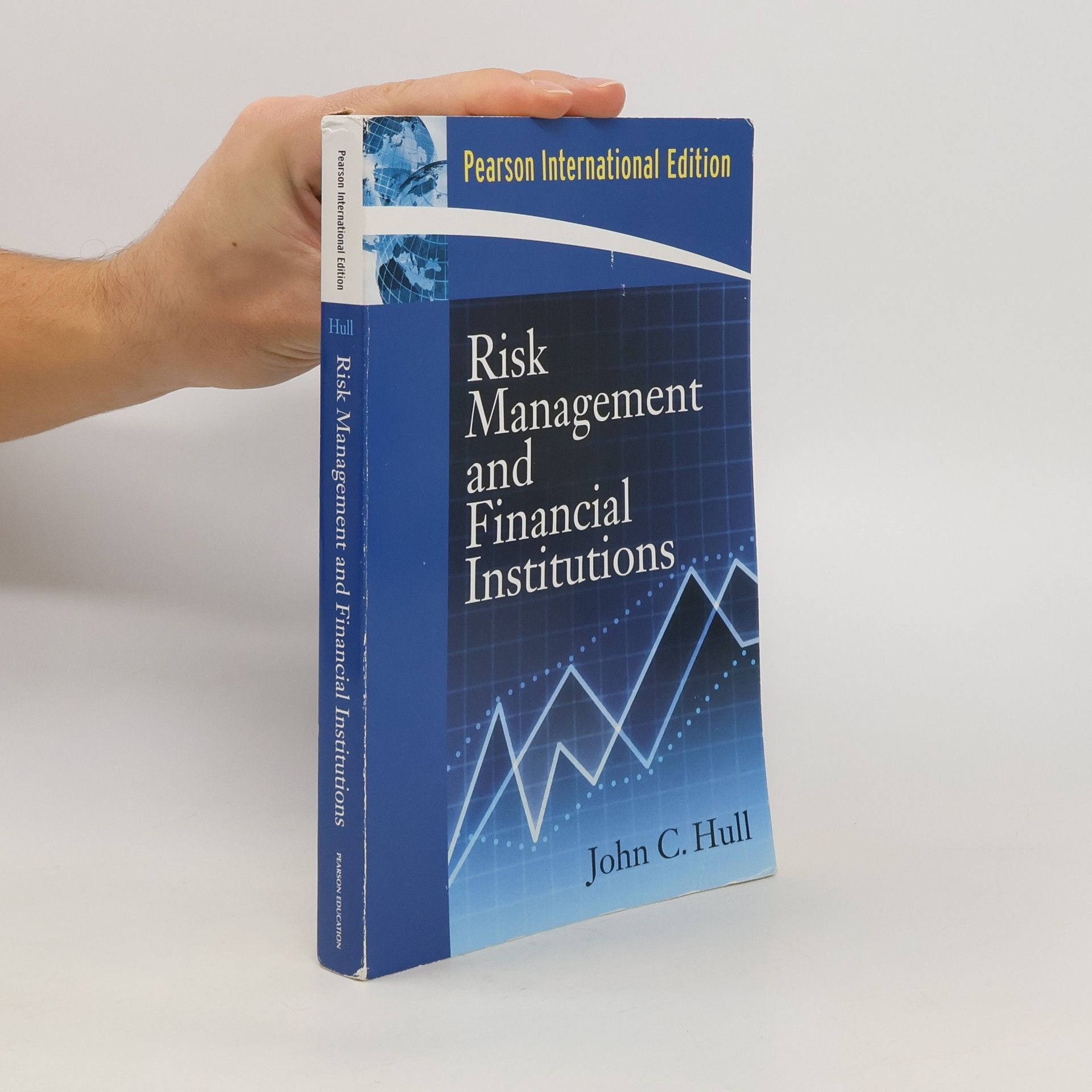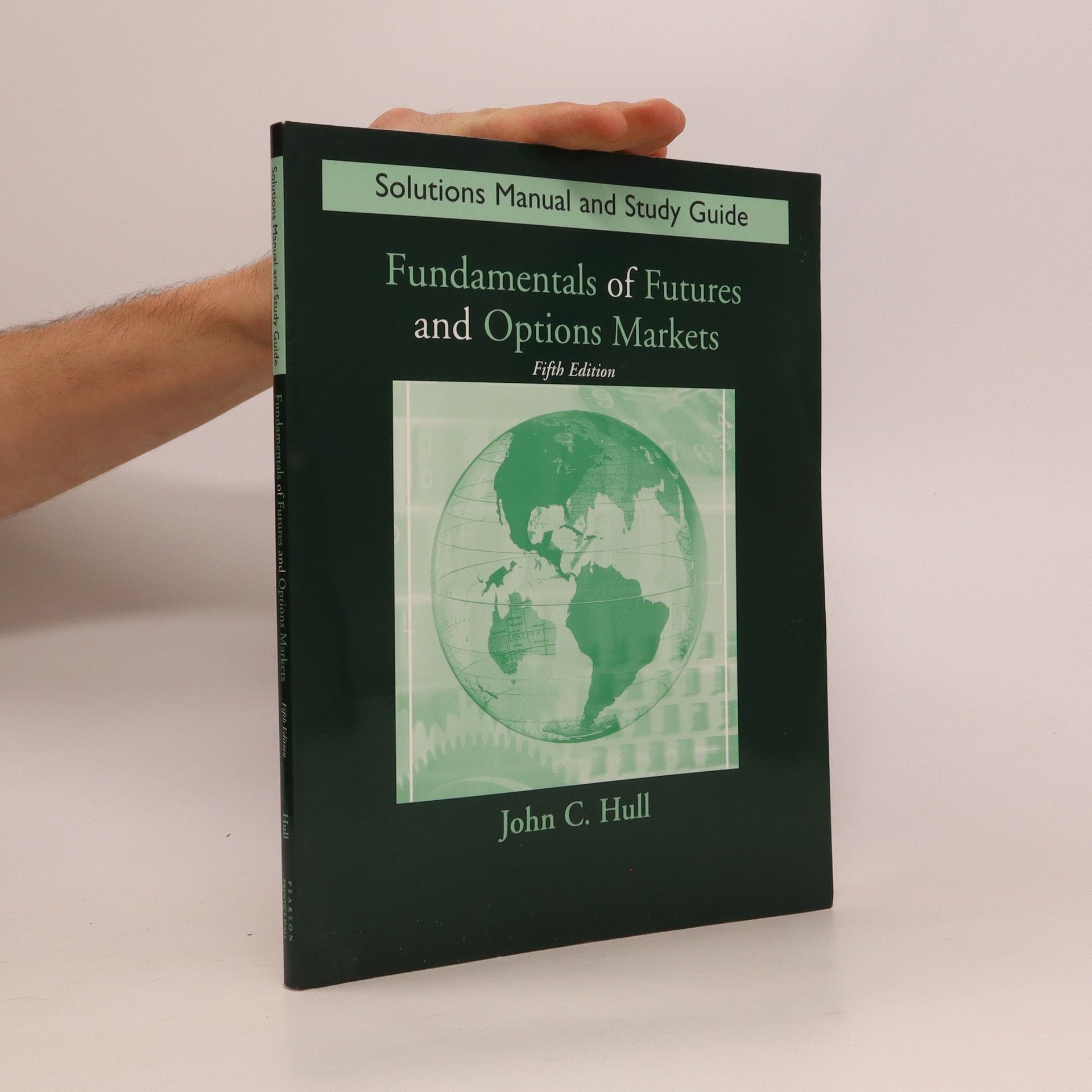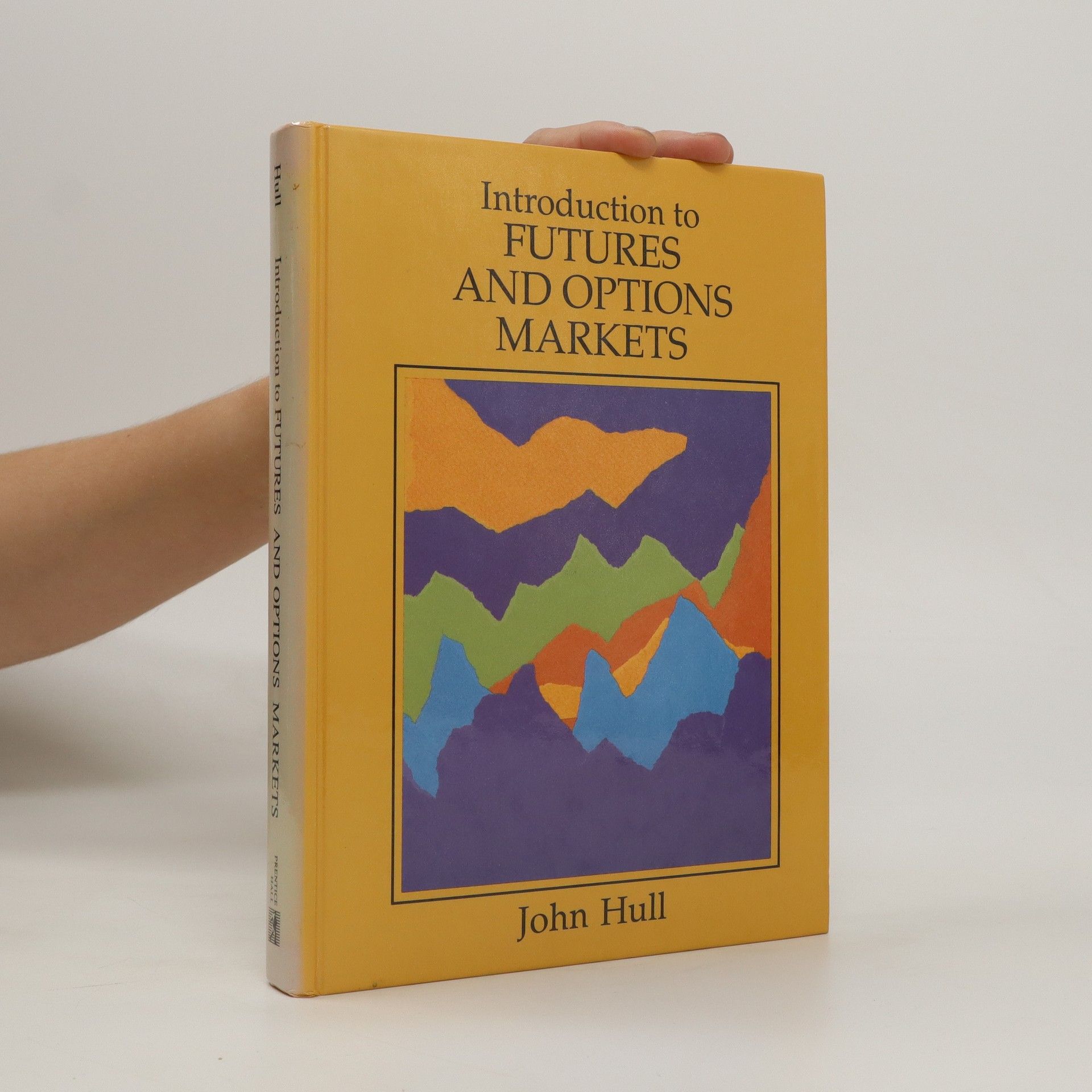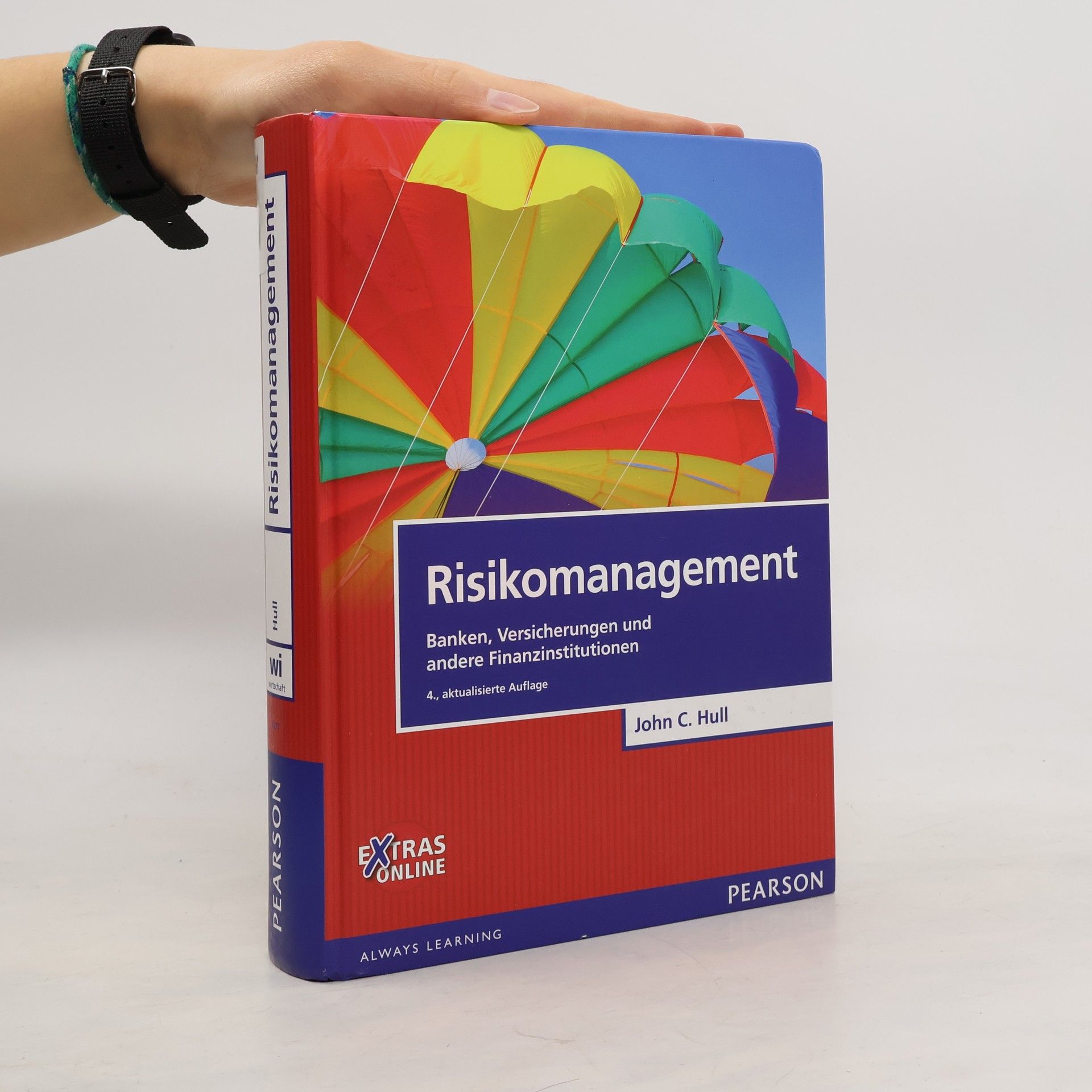"Fundamentals of Futures and Options Markets" offers a simplified introduction to futures and options, making it accessible for students without advanced math skills. It covers similar content as Hull's "Options, Futures, and Other Derivatives" and is suitable for graduate and undergraduate courses in business and economics.
John C. Hull Boeken
John C. Hull is een vooraanstaand onderzoeker op het gebied van kwantitatieve financiën, vooral bekend om zijn bijdragen aan de modellering van derivaten. Zijn werk duikt in het complexe begrip van financiële instrumenten en hun beheer. Via zijn invloedrijke publicaties overbrugt hij de kloof tussen academische theorie en praktische toepassing, waardoor zijn inzichten toegankelijk zijn voor zowel academici als marktprofessionals. Zijn benadering van financiële derivaten wordt beschouwd als een fundamenteel element in het vakgebied.







"Options, Futures, and Other Derivatives, Global Edition" by John Hull is a comprehensive guide for finance students, covering essential foundations of the derivatives market. The 11th edition features modern topics, clear explanations, and practical resources, making complex concepts accessible while addressing current regulations and trends.
Covers forward contracts, futures, contracts, options, swaps, and other non-standard derivative securities, and looks at mathematical models of stock price behavior.
Options, Futures and Other Derivatives, Fourth Edition (Solutions Manual)
- 162bladzijden
- 6 uur lezen
Solutions to problems in the text. Available for sale to students.
Options, futures, and other derivatives : solutions manual
- 288bladzijden
- 11 uur lezen
As in the sixth edition, end-of-chapter problems are divided into two groups: ``Questions and Problems'' and ``Assignment Questions''. Solutions to the Questions and Problems are in Options, Futures, and Other Derivatives 7e: Solutions Manual which is published by Pearson and can be purchased by students.
Risk Management and Financial Institutions
- 528bladzijden
- 19 uur lezen
This text takes risk management theory and explains it in a 'this is how you do it' manner for practical application in today's financial world.
Fundamentals of Futures and Options Markets
- 148bladzijden
- 6 uur lezen
A text/disk package for undergraduate and graduate students in elective courses in business and economics, covering much of the same material as the author's previous text, Options, Futures, and Other Derivatives , but in a way that readers with limited training in mathematics will find easier to understand. Part I covers futures and swaps markets, and Part II, the bulk of the book, covers options markets. Includes chapter quiz questions and explained answers, additional questions and problems, mathematical appendices, and a glossary. This third edition features a new chapter on value at risk, and new material on swaps, volatility smiles, and standard market models for bond options, interest-rate caps and floors, and European swap options. The accompanying disk contains new Windows-based software specifically designed to complement the text, allowing readers to value different options, display binomial trees, and plot relationships between variables. Annotation c. by Book News, Inc., Portland, Or.
Nowe wydanie bestsellerowej książki na temat zarządzania szeroko pojętym ryzykiem. Autor – światowej sławy specjalista z zakresu instrumentów finansowych oraz ryzyka finansowego – przedstawia praktyczne podejście do pomiaru i zarządzania ryzykiem przez banki i inne instytucje finansowe. Praca zawiera wiele przykładów oraz wykresów ilustrujących praktyczne stosowanie narzędzi analitycznych, a także zestawy pytań i ćwiczeń do samodzielnego rozwiązania. Na szczególną uwagę zasługuje aktualność poruszonych w książce zagadnień. John C. Hull sprawnie ilustruje poszczególne tematy za pomocą znanych przykładów spektakularnych upadków lub kłopotów instytucji finansowych oraz kryzysów o skali globalnej. W nowym wydaniu autor dodał m.in. nowe rozdziały poświęcone innowacjom finansowym i regulowaniu rynków OTC na derywaty. Kompleksowo został uaktualniony rozdział na temat budowania modeli, by lepiej oddawał działania rynków w odniesieniu do stóp procentowych. Wprowadzone zostały też istotne zmiany w rozdziale poświęconym ryzyku operacyjnemu. Książka jest adresowana do pracowników instytucji finansowych, w tym przede wszystkim różnego rodzaju funduszy, banków, domów maklerskich, firm assets management, zakładów ubezpieczeń oraz firm doradczych w zakresie finansów. Jest nieocenionym źródłem wiedzy dla osób przygotowujących się do egzaminów na doradców inwestycyjnych oraz studentów kierunków ekonomicznych.
Risikomanagement
Banken, Versicherungen und andere Finanzinstitutionen
Wie kein anderes Buch bietet Risikomanagement eine umfassende Einführung in das für Banken, Versicherungen und Unternehmen so wesentliche Thema. Es verbindet, wie auch der Klassiker des Autors Optionen, Futures und andere Derivate, den theoretischen Anspruch des Akademikers mit den praktischen Anforderungen des Banken- und Börsenprofis. Zum einen beleuchtet es Inhalte, wie sie in betriebswirtschaftlichen Vorlesungen Finanzwirtschaft und Risikomanagement relevant sind. Im praktischen Kontext werden die Methoden des Risikomanagements mit Fall- und Rechenbeispielen erklärt. Im Anschluss an jedes Kapitel stehen zahlreiche Übungs- und Rechenaufgaben. Zum anderen gibt das Buch einen aktuellen Einblick in die neue Bankenregulierung sowie in das Thema Bankenverluste und was daraus gelernt werden kann. Die neue 3. Auflage geht u. a. auf die die Regulierung von Finanzinstituten in den letzten drei Jahren ein, die stetig weiterentwickelt haben. Daneben werden neue Aspekte beim Handel mit Over-the-Counter-Derivaten behandelt. Neu ist ein Kapitel über unternehmensweites Risikomanagement, das Risikobereitschaft, Risikokultur und die Bedeutung eines ganzheitlichen Ansatzes diskutiert.


